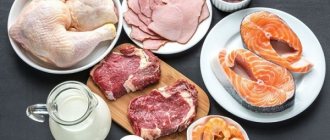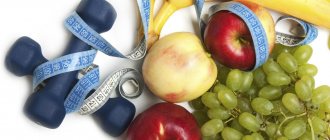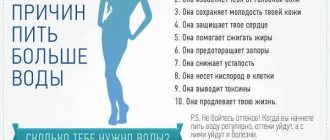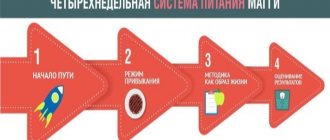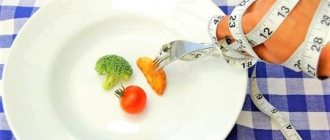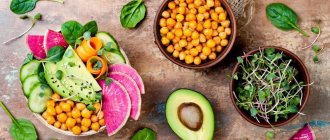There is no need to give up your favorite meat dishes. In some cases, fatty, fried and even alcohol is acceptable. The main prohibition concerns carbohydrates, the lack of which should lead to the processing of the body's fat reserves, and therefore to weight loss. In this regard, it is not allowed to eat flour, fruits and sweets. A real celebration of life! No one will even notice that you are trying to lose extra pounds. All this made high-protein diets (Kremlin, Hollywood, Dr. Atkins, Dukan, the newfangled paleo diet and other variations) truly popular. Unfortunately, comfortable does not always mean useful. Let's try to discover the pitfalls that may lie in wait on the path to the coveted slimness. The task is complicated by the fact that there is very little serious research into the effects of these diets on human health, and there are many individual opinions. Nevertheless, we will try to provide some clarity.
Opinion No. 1: You can lose weight quickly and not experience hunger pangs
According to a comparative study, a high-protein diet, in contrast to the Mediterranean diet, is indeed more effective, at least over a six-month period. The fact is that significantly more calories are spent on digesting proteins. This is a fairly long process, and as a result, the feeling of fullness lasts longer. In addition, ketone bodies (fatty acid oxidation products), the level of which in the body increases significantly during carbohydrate starvation, dulls appetite.
Nevertheless, on such a diet, people manage to gain weight! Why? For example, in the “Kremlin” or Dukan diet there are no restrictions on the volume of meat portions, as a result there is a high probability of overeating. And the meat varies greatly: 100 g of pork contains significantly more fat than chicken. Excess fatty foods can just lead to extra pounds.
The main idea of protein diets is that, without receiving carbohydrates - the main source of energy, the body begins to actively break down fats, which leads to rapid weight loss. In fact, the muscles are the first to be used. Protein from food is certainly used to restore them. But such extreme conditions, associated with additional energy costs, do not improve our health.
Menu
Below is an example of a protein diet menu for weight loss for a month.
| Diet day | Breakfast | Lunch | Dinner | Afternoon snack | Dinner |
| 1 | Cottage cheese Tea | Egg Cheese | Chicken breast Bread | Apple | Fish Leaf salad |
| 2 | Egg Vegetable salad | Cottage cheese | Beef Stewed vegetables | Carrot | Boiled chicken Greenery |
| 3 | Egg Vegetable salad | Hazelnuts (10 nuts) | Chicken cutlet Vegetable salad | Kefir | Fish Vegetable stew |
| 4 | Omelette Milk | Chicken breast Stewed zucchini | Fish Cucumber Bread | Orange | Turkey Carrot salad |
| 5 | Oatmeal | Egg Cheese | Vegetable soup Beef Salad with greens | Cottage cheese | Chicken breast Cabbage salad |
| 6 | Turkey Beans | Cottage cheese with a spoon of honey | Fish with vegetables | Grapefruit | Egg Vegetable salad |
| 7 | Scrambled eggs with tomato and herbs | Apple | Chicken Cucumber Salad | Yogurt | Buckwheat porridge Beef stew |
Using this table of a protein diet for a month, you can independently create a menu for weight loss for another three weeks, rearranging the days and adding variety to your diet with other permitted foods.
Suppose a person once gained excess weight because he ate more than his body required. To begin with, it is worth recognizing this fact. This is the first step to getting rid of extra pounds.
Now the previous process of weight gain must be reversed - energy expenditure must exceed intake. The prospects for increasing energy expenditure by increasing physical activity are slim. Time and health do not always allow it, and it will not be possible to achieve a significant excess of expenses over income in this way.
The only way left is to cut the calorie intake of your diet. There are more opportunities here, the only question is how expedient it is.
This article describes a technique that is considered extreme and should only be used if there is a good reason for it. Or, according to common sense, abandon the protein diet for 4 weeks in favor of a healthier method of losing weight.
Opinion No. 2: It is difficult to maintain the achieved results
According to Fatima Dzgoeva, as soon as nutrition returns to normal, the weight is gained again. Having used up its strategic reserve of glycogen, the body sacrifices everything to obtain carbohydrates, even converting its own proteins into glucose (gluconeogenesis). In this way, not only fat, but also protein mass of the body is intensively lost. Naturally, as soon as the diet is interrupted, losses have to be replenished, and with a reserve.
According to Natalia Lyutova, protein, fat and carbohydrate balance are very strongly interconnected, the exclusion of one of the components is serious stress for the body. He will, of course, try to compensate for the damage, but this will require a lot of energy. As a result, the body will require a lot of high-quality food, a lot of carbohydrates.
A smooth exit from the diet will help maintain the results achieved. It is necessary to gradually reduce the amount of protein by introducing more vegetables, fruits and cereals into the diet.
Opinion No. 3: Possible heaviness in the stomach, flatulence, constipation
When following a diet for a long time, excess protein accumulates in the body, which it has difficulty coping with. The problem is aggravated by the fact that proteins are not stored in reserve, as is the case with fats. The norm for an adult is 0.8–1 g of protein per 1 kg of weight. The final value depends on lifestyle, age, general condition of the body and other factors. Typically, if you weigh 70 kg, 56–70 g of protein per day is enough. For example, 100 g of chicken meat contains approximately 20 g of protein, respectively, 250–300 g of chicken is the maximum amount of meat per day that the body can cope with. But we eat much more.
Difficult-to-digest protein accumulates in the gastrointestinal tract, causing fermentation processes. In addition, due to a sharp reduction in the diet of vegetables, the influx of dietary fiber is limited, which negatively affects intestinal motility. You can also add that protein diets are low in fat - there is too little lubrication to remove metabolic products from the body. Hence bloating, heaviness in the stomach and constipation.
It is recommended to drink more water, especially before meals, eat wheat and oat bran, dairy products - for example, low-fat yogurt with prunes. Light physical activity will also help - brisk walking, abdominal exercises. If these measures are ineffective, you should definitely return to a balanced diet. Ksenia Selezneva draws attention to the fact that a deficiency or excess of at least one of the components (proteins, fats, carbohydrates, vitamins and microelements) for a long time will inevitably lead to digestive disorders and metabolism in general.
Protein diet rules
The protein diet is quite strict, but the results achieved in a week or two are worth it. Since the diet cannot be called balanced, its use should, first of all, be strictly limited in time - 7, 10 or 14 days. Another tip that accelerates the positive results of a protein diet is the recommendation to combine the diet with physical activity. The diet is perfect for people with an active lifestyle and a positive attitude towards sports. A protein diet allows you to not feel hungry, feel full with small but frequent portions of food and actively spend the energy received when performing physical activity, which strengthens and builds muscle tissue.
Nutrition on a protein diet should follow simple principles:
- fractional meals - 5-6 times a day in relatively smaller portions than could be the case with three meals a day;
- It is better to eat meals at the same time every day so that the body gets used to the routine;
- do not eat at night - the last meal should take place several hours before bedtime, so as not to overload the digestive system on the eve of the night;
- during all days of the diet, you need to drink 1.5-2 liters of water per day, since a protein diet creates an excessive load on the kidneys, which threatens dehydration;
- avoid consumption of alcohol and caffeine;
- Of all the varieties of culinary processing of products, preference should be given to the most “healthy” ones - steaming, stewing in its own juice, baking.
While meat, egg whites, and low-fat dairy products are the predominant components of the protein diet, the diet is usually supplemented with fruits or vegetables. Thus, a distinction is made between fruit-protein and vegetable-protein diets. Drinking protein shakes is very appropriate. You can take note of several of their recipes:
- beat in a blender 100 g of low-fat cottage cheese, 200 ml of skim milk, 1 banana, 1 tbsp. honey, 2-3 tbsp. oatmeal;
- beat 2 bananas, 500 ml skim milk in a blender, add a little cinnamon to taste;
- beat 200 g of low-fat cottage cheese, 100 g of low-fat kefir, 100 g of apple juice, 1 persimmon or banana in a blender;
- beat 100 g of low-fat cottage cheese, 100 g of cherry juice, egg white and a little sugar in a blender.
A protein diet should not contain an abundance of sauces, salt, vinegar and mayonnaise should be completely excluded. Vegetable oil from sunflower should be replaced with first-grade olive oil, but its amount in the daily diet should not exceed 3-4 tbsp. It is better to avoid butter.
Opinion #4: Excessive protein intake puts unnecessary strain on the kidneys.
Take the test
Is your metabolism ok?
Kidneys are filters that cleanse the blood of waste products from the body. Excessive protein intake can lead to hyperfiltration, glomerulosclerosis, and intrarenal capillary hypertension. The fact is that protein foods are rich in purines (from meat and offal - liver, kidneys, muscles, brain, tongue), the breakdown products of which (urates or uric acid salts) accumulate in the blood plasma. This leads to the deposition of uric acid salts in the form of crystals in the body tissues, especially in the kidneys. The joints also suffer. To remove the toxic compounds that form from the body, it is recommended to drink more water, but this also puts additional stress on the urinary system. It is important to adhere to the following norm: 30 ml of water per 1 kg of body weight.
Opinion #5: Risk of Cardiovascular Disease
The increased risk of cardiovascular disease from excessive consumption of red meat has been confirmed by a number of epidemiological studies. The main culprit of these problems is traditionally considered to be “bad” cholesterol.
But it turned out that it's not just cholesterol. Scientists from the Harvard Stem Cell Institute also associate the problems that arise with a disruption in the renewal of vascular walls due to excess protein. The results of their experiment were published in the Proceedings of the National Academy of Sciences. According to the researchers, even in conditions of a sufficient amount of building material (proteins), cells began to divide more slowly. In place of the dying ones, microdamages formed, in which atherosclerotic plaques formed. The growth of new capillaries practically stopped.
However, there is also a completely opposite opinion. Thus, the famous American healthy eating trainer, biochemist Robb Wolf made a sensational statement: the “bad” type of high-density lipoproteins, which are involved in the transport of cholesterol and have the habit of sticking to the inner surface of the arteries, also arises from excess carbohydrates!
Opinion No. 6: Increased risk of cancer, autoimmune diseases, osteoporosis
Abuse of proteins can disrupt the acid-base balance in the body when oxidation products of proteins and fats (ketone bodies, lactic, pyruvic, acetoacetic and other acids) accumulate in the tissues. Which can lead to the development of metabolic acidosis (ketoacidosis; from the Latin acidus - “sour”), intoxication of the body. It is known that ketone bodies (in other words, acetone) can stimulate the growth of cancer cells and autoimmune diseases. “The protein is a structural element of the tumor. Usually, people who have suffered from cancer are limited in protein in their diet and switched to complex carbohydrates. Unfortunately, there is little accurate data. Now in Europe, a large-scale study of the effect of food on various types of cancer is just being carried out,” notes Fatima Dzgoeva.
Of course, the body fights to maintain a constant internal environment by initiating special biochemical reactions. In case of acidosis, it is necessary to neutralize excess acid, for this purpose calcium from the bones is used, which leads to thinning of bone tissue, there is a risk of developing osteoporosis, hair and nails become brittle. By the way, it is precisely because of ketoacidosis that adherents of protein diets may have an unpleasant acetone odor from the mouth and an unhealthy complexion.
Reviews and results
Below you can evaluate photos of people in the “Before and After” format who were able to lose weight thanks to a protein diet, a healthy lifestyle and physical activity.
Leave your feedback about the diet in the comments. Describe your experience and tell our readers how effective the protein diet was for you!
Evaluate how effective the protein diet turned out to be for you!
Conclusions "Health"
1. High protein diets can really help you lose extra pounds quickly. Eating protein-rich foods can satisfy your hunger for a long time. However, any amateur activity is not welcome here. It is important to strictly follow the instructions of a nutritionist, who will select the timing and proportions that are necessary for you. In the wrong hands, diet can cause serious health problems. Bran, water and dairy products will help you survive carbohydrate starvation.
2. The most difficult thing when losing weight on a high-protein diet is maintaining the results achieved. Many people break down and quickly gain weight. It is important to gradually return to a balanced diet by introducing fruits, vegetables and grains into your diet. It has been proven that only changing lifestyle and eating habits works in the long term.
3. Before deciding on one of the high protein diets, it is important to make sure that all body systems are working properly and weigh the pros and cons. Any diet, especially an unbalanced one, is a strong burden, even stress. There are serious medical contraindications. In addition, there are very few large-scale studies of the effects of high-protein diets on human health. According to scientific evidence, they are at the lowest level - D (development of a consensus by a group of experts on a specific problem). Some nutritionists use them as an emergency short-term measure to quickly overcome a temporary stop in weight loss.
Diet
If you eat well and consistently maintain your normal weight, 3 meals a day is quite enough.
This is how they eat in the army, on expeditions, and on shifts. If you reduce the caloric content of your diet, which is a condition for losing weight, in the intervals between three meals, you will constantly be haunted by a feeling of hunger, and the number of meals will have to be increased to 5-6 (accordingly, redistributing the daily amount of food while maintaining its total calorie content).
In this case, the break between individual meals is reduced to 3 hours, and the feeling of hunger does not have time to worsen to unacceptable limits.
It is most rational to leave 3 main meals in the daily routine - breakfast, lunch and dinner, and between them introduce a second breakfast (lunch) and a snack (afternoon snack or dessert).
The general principles for constructing a protein diet for a month are as follows:
- Breakfast. This is the most important meal of the day, accounting for 25% of the daily calorie intake. Breakfast should certainly include slow carbohydrates (low glycemic index) and proteins. This could be an omelet and whole grain bread, or several pancakes made from buckwheat flour with berries, accompanied by a glass of fermented milk drink that is not very high in fat and one piece of fruit.
- Lunch. With the low calorie content of this snack (10% of the caloric content of the diet), it can easily accommodate one fruit, a piece of cheese or an egg (of course, not all at once). If you had fruit for breakfast, eat something else for breakfast.
- Dinner. 30% of your caloric intake will allow you to diversify your lunch and make it satisfying. Lunch on a protein diet for 4 weeks accounts for most of the daily amount of protein. Bake a piece of beef or poultry (chicken, turkey), and stew vegetables as a side dish for the meat. The side dish can be replaced with a vegetable salad with herbs; be sure to eat a piece of whole grain bread at lunch.
- Afternoon snack. 10% of the calorie content of the diet is chopped or grated carrots, nuts, or a muesli bar, if, with a busy pace of life, a snack is made “on the go.”
- Dinner. The calorie content of the protein diet dinner menu for a month is similar to breakfast, with 25% of the caloric value of the diet here and there. Certain restrictions are imposed on the protein diet dinner - there should be no fast carbohydrates (with a high glycemic index), the main course of dinner is lean white meat or fish, and a sufficient amount of fresh or stewed vegetables. If you prefer to drink a glass of fermented milk drink (“evening kefir”) an hour and a half before bedtime, the calorie content of dinner will have to be cut even further, to about 20%.
Lose weight at any cost
If you still like protein diets, take the following precautions:
– choose nutrition systems that limit carbohydrates less;
– do not rely heavily on semi-finished products, although, for example, in the Kremlin diet they are equivalent in points to fresh meat or fish, they contain many dyes and food additives;
– give preference to lean meats;
– take complexes of vitamins and microelements;
– don’t forget about water and bran, as well as low-fat dairy products,
– do not try to solve problems that have been accumulating for years in a couple of weeks – sudden weight loss will not be beneficial.
Protein diets are contraindicated for people who have problems with the kidneys, stomach or heart, gout, diseases of the endocrine system, menstrual irregularities and, of course, pregnant and breastfeeding women.
Mandatory components of a protein diet
There are an incredible variety of foods high in protein, but only a few of them will be most beneficial for your health and will be well absorbed. These include the following “five”:
- chicken fillet - a medium-sized chicken breast contains 200 kcal, 40 grams of protein and only 2 grams of fat; It is better to eat fillet boiled (steamed or in broth), baked in foil, grilled without the use of additional fat; Stewed or boiled vegetables are suitable as a side dish;
- rabbit meat is a dietary product that is not only distinguished by its high protein content (21%), but is also a unique source of iron, B vitamins, potassium, phosphorus, magnesium and other minerals;
- salmon fillet is a delicious product, 200 grams of which contain not only 40 grams of protein, but also 28 grams of fat; although these are useful omega-3 acids, it is better not to consume salmon every day, but, like beef, as an exception;
- chicken eggs - it is the egg whites that are of greatest interest; during protein days, up to 7 eggs per day (4 whole + 3 whites) are allowed; eggs can be boiled, poached and baked omelets; 7 eggs contain 520 kcal, 40 grams of protein, but also 35 grams of fat;
- protein powder is a representative of unnatural nutrition, but is very appropriate during a diet and during intense training; 2 scoops contain 170 calories, 40 grams of protein and 0 grams of fat.
A person following a protein diet needs to consume 100-120 grams of protein per day.
Which meat products should be treated with caution during a diet, and which are the most beneficial?
Of particular value, as has already become clear, is chicken, turkey (in urban conditions this meat can be considered more useful than boiler chicken) and chicken eggs. The latter, from a nutritional point of view, are most favorably absorbed by the human body.
Veal/beef is also a well-received product. The first is distinguished by its tenderness and minimal fat content, and is quickly absorbed by the body. Beef in general is a source of a wide range of essential and essential amino acids. A beef cutlet weighing 200 grams contains up to 350 kcal, 40 grams of protein and 15 grams of fat. However, it will also be an excellent source of calcium and zinc. Since the cutlet is fried using fat, it is not recommended to include it in the daily diet; this dish can be used for variety.
Pork contains less connective tissue, but its individual parts (the so-called fatty ones) contain up to 50% fat and only 12% protein, while meat pork contains 14% protein, but 33% fat instead of 50%, and pork Tenderloin contains 19% protein and 7% fat.
People who are losing weight on proteins should pay special attention to offal products. It is a unique source of protein, as well as minerals, in particular iron, vitamins, vitamins B, C and A. The tongue contains little connective tissue, so it is easily absorbed by the body. The heart is rich in mineral salts, including iron, and has a low percentage of fat. Brains contain less protein (12%) and quite a lot of fat (8.6%), but they contain valuable compounds rich in phosphorus and essential unsaturated fatty acids. The lungs are especially rich in iron (10%).
Lamb is rich in connective tissue, and therefore tough and more difficult to digest, but it contains potassium, phosphorus and iron salts. Horse meat is rich in complete proteins (21%), potassium and iron salts, while it contains relatively little fat (4%).
If meat proteins are absorbed by 87-89%, then fish proteins by 93-98%. Caviar can be considered the most useful fish product, since it is not only a source of protein (up to 30% or more), but also rich in phosphorus and potassium, water- and fat-soluble vitamins. Fish milk is rich in essential amino acids, and its fat content is low (compared to caviar, in which this figure can reach 15%).
In an effort to improve the beauty of your body through a protein diet, do not rush to give preference to:
- sausages;
- salted and smoked fish products;
- canned meat and fish.
I can't and I don't want to
Protein diets can negatively affect male potency, because the body is under severe stress. He has to neutralize a large number of breakdown products of food proteins. I just don't have enough energy for sex. Excess cholesterol, a constant companion of such a diet, also negatively affects potency. In order for a man’s sexual function to be normal, vitamins A, groups B and E are needed. They are found in grain products, vegetables and fruits, that is, exactly what protein diets limit. In addition, people suffering from obesity go on diets, which in itself significantly reduces potency. A protein diet can worsen the situation.
Permitted and prohibited products
The last item on the list of disadvantages of a protein diet is a consequence of the varied, but still somewhat limited range of foods allowed for consumption.
However, this problem is easy to solve: all you need to do is stock up on a vitamin-mineral complex before starting the program and use it regularly while losing weight. But you should not include in your diet foods that are prohibited on a protein diet, even to compensate for the lack of nutrients.
Prohibited products include: baked goods and all pastries, pasta, cereals, fruits, potatoes, fatty fish, side dishes, butter, semi-finished products, alcoholic beverages.
Permitted products include: all types of meat (including kidneys, liver, tongue and other offal), all types of poultry (including offal), fish (tuna, cod, pink salmon, salmon, flounder), eggs, low-fat hard fish cheeses (as well as Tofu), seafood, yogurt and low-fat cottage cheese.
To eat or not to eat?
According to a large European study, the EPIC-Oxford study, which covered more than 65 thousand people, the diet of meat eaters who consumed red meat more than 3 times a week was 14% higher in calories than that of vegetarians and people who often eat fish. In addition, the consumption of saturated fatty acids was doubled compared to the recommended norm, the consumption of dietary fiber, and the dietary intake of folate, vitamins C, E, and thiamine were reduced by approximately 40%. It has been suggested that meat consumption influences changes in enzymatic composition, which provoke gene polymorphism, possibly leading to the development of cancer cells. There is scientific evidence that frequent consumption of meat increases the risk of type 2 diabetes by almost 2 times due to impaired carbohydrate metabolism. In addition, N-nitrosamines are formed during digestion, which can have a toxic effect on pancreatic cells
Nevertheless, meat is one of the most important sources of iron and zinc (and in an easily digestible hemoform), as well as monounsaturated and omega-3 polyunsaturated fatty acids necessary for essential physiological processes. Moderation is good in everything.
